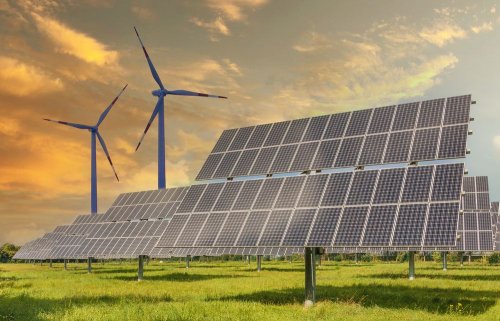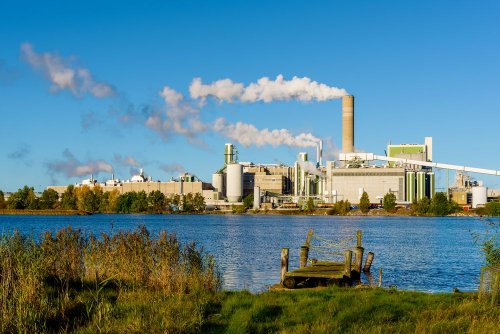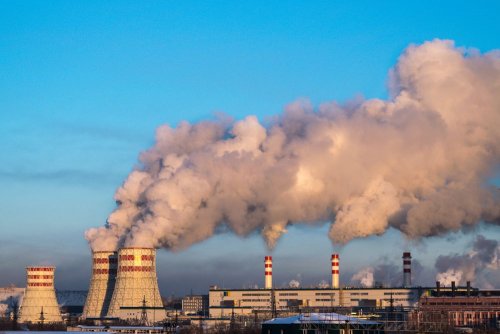For Ukraine, replacing natural gas with biomass waste is the easiest and cheapest way to get rid of dependence on russian gas, even purchased through intermediaries from the EU.
Such dependence is one of the biggest threats to national security, said economic consultant Vadym Novikov, reports Economic truth.
In 2022, boiler houses and thermal power plants that previously switched from gas to biomass will return to gas, despite the fact that the russian federation has raised its price almost 10 times.
Heorhiy Heletukha, chairman of the board of the Bioenergy Association of Ukraine, believes that the main reason is the artificially low price of natural gas for the population and public institutions, in which heating with gas turns out to be cheaper than heating with firewood or wood pellets.
The low price of gas is covered by subventions from the state budget, which make bioenergy uncompetitive.
This trend is also facilitated by:
- a sharp increase in the price of wood with a fixed heat tariff at the same time;
- shortage of fuel wood;
- non-payment by the state for electricity produced under the green tariff.
In addition, there is a carbon tax for biomass energy producers, although CO2 emissions from burning biomass are equal to their absorption during the lifetime of the plant.
"There are several reasons that caused an absolutely absurd situation, when producers of heat from biomass are interested in returning to much more expensive imported gas or in ceasing their activities in general, so as not to accumulate losses," noted Novikov.
Every year in Ukraine, at least 8 million tons of oil-equivalent crop waste, including straw, corn stalks, and sunflowers, which are almost never used for fuel purposes, appear.
This waste is much more than fuelwood and much more than is needed for all boiler houses and CHP plants of Ukraine to give up gas, and for Ukraine to stop importing it.
Thus, in 2018, the amount of such waste in million tons of oil equivalent amounted to 9.5 million tons. However, no more than 0.7 million tons were used for energy purposes, mainly sunflower husks.
Novikov emphasized that plant waste is not only a huge local fuel resource, but also a source of the cheapest energy. According to the Bioenergy Association of Ukraine, as of mid-summer 2021, the cost of one gigajoule of energy from plant waste did not exceed 80 hryvnias (including VAT).
The cost of the same unit of energy from natural gas reaches about 370 hryvnias, from fuel oil – 300 hryvnias, from coal – 230 hryvnias, from wood (cod) – 160 hryvnias.
Direct subsidies to producers of energy from plant waste
The artificially low price of natural gas makes thermal energy cheaper for the population and budget institutions, that is, it fulfills the role of social assistance, while at the same time making biomass energy unprofitable or low-income.
To get out of such a situation, it is necessary to provide social assistance not through distorted prices, but through targeted subsidies.
The path from the source of financing to the biomass energy producer should be as short as possible.
It can be suggested that the source of financing is the importer of natural gas, and the resource for financial support is the funds intended for importing gas. Biomass energy producers should receive the subsidy directly.
Even at pre-war gas prices, energy from crop waste was four times cheaper than energy from natural gas.
Method of stimulation
At current prices, at least $10 billion is needed to import 10 billion cubic meters of gas per year. It is from these funds that producers of energy from biomass must be paid to convert boiler plants and CHP plants from natural gas to biofuel. A third of this amount may be enough to completely abandon gas imports.
If Ukraine buys gas at $1,000 per thousand cubic meters, and the domestic consumer pays only $400, then the remaining $600 must be paid either from the revenues of Naftogaz or from the revenues of the state budget.
"If a private entrepreneur or local government switches a boiler plant from natural gas to biomass, it would be beneficial for the state to pay him an additional $100 for each ton of fuel biomass, because three tons of biomass will provide the same amount of heat as 1,000 cubic meters of gas," Novikov explained.
That is, for three tons of biofuel, the subsidy will amount to $300, which means a budget saving of $300 for each replaced thousand cubic meters of gas.
A subsidy of $100 per ton makes biofuel virtually free for the owner of a boiler house, and in the cost of heat, fuel costs are at least 80%, that is, the owner of a boiler house will be able to sell heat at low tariffs set by the state and receive significant profits.
The effect will be even greater if the subject of subsidies is not burned biomass, but produced thermal energy. This method of subsidies will stimulate the purchase and installation of the most efficient boiler equipment.
Investment projects for the reconstruction of boiler houses and CHP plants
Novikov assumed that the reconstruction of the boiler room with free fuel will pay for itself in one heating season, because the investment in the boiler room on fuel wood by 2022 was returned in two heating seasons.
After the return of investments, it would be advisable to reduce the subsidy, which would save the budget and not increase the investor's risks, because he would already have time to return his capital investment.
There are now approximately 20,000 gas-fired boiler plants and CHP plants in Ukraine, of which almost 90% are small boiler plants with a capacity of up to 3 Gcal/h, but together they produce no more than 15% of energy.
More than half of the energy is produced by very large boiler houses and thermal power plants, each with a capacity of more than 100 Gcal/h, although their number does not exceed 1% of the total.
Small boiler houses are located mainly in rural areas or in small towns. They require a small amount of biofuel (5-10 thousand tons per year), which can be obtained from local farmers and private entrepreneurs.
Ukrainian manufacturers will be able to offer boiler equipment of this capacity at low prices. Its operation does not require high qualifications, therefore, if there is a subsidy for biofuel, then this segment of the market will easily be filled by local small businesses.
However, wood-burning boilers, which are mass-produced in Ukraine, are not suitable for burning crop production waste due to alkaline metals that cause ash caking. However, it is possible to purchase appropriate licenses from European manufacturers and start production at several Ukrainian factories. Perhaps a centralized solution to this problem will make the process cheaper and faster.
Regarding boiler houses and large-capacity CHP plants, there is no boiler equipment, no logistics experience, no knowledge for design, construction and operation in Ukraine for such projects. However, Denmark has such experience.
In order to stop the import of natural gas, it is necessary to:
- The government's decision to introduce subsidies to boiler plants and CHP plants that will switch from natural gas to crop production waste. Subsidies should be paid from the funds saved due to the refusal to import natural gas.
- The government's submission to the Verkhovna Rada of a draft law on the abolition of the tax on CO2 emissions for biomass energy producers.
- Appeal of the Government of Ukraine to the Government of Denmark regarding technical assistance in the development and implementation of large capacity projects on plant waste. Help is needed in the design, supply of equipment, construction and operation of boiler houses and thermal power plants.
- Decisions of local authorities and other owners of small boiler plants on the sale or concession of boiler plants to agricultural producers who have sufficient amounts of crop production waste to convert boiler plants from gas to biomass.
Earlier, EcoPolitic wrote, that the city of Slavutych, in the Kyiv region, provides 40% of heating needs and hot water thanks to a solid fuel biomass boiler.
As EcoPolitic previously reported, Ukraine can produce 1.6-1.9 million tons of biodiesel per year, which is safer for the environment than traditional diesel and can become a full-fledged alternative to it, especially in conditions of a fuel crisis.





